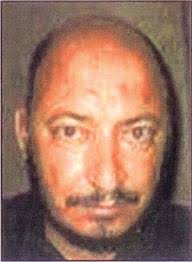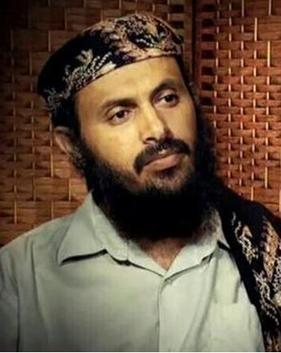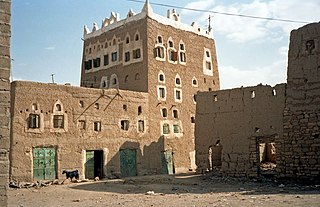
Al-Qaeda is a pan-Islamist militant organization led by Sunni Jihadists who self-identify as a vanguard spearheading a global Islamist revolution to unite the Muslim world under a supra-national Islamic state known as the Caliphate. Its membership is mostly composed of Arabs, but also includes people from other ethnic groups. Al-Qaeda has mounted attacks on civilian, economic and military targets of the US and its allies; such as the 1998 US embassy bombings, the USS Cole bombing and the September 11 attacks. The organization is designated as a terrorist group by NATO, UN Security Council, the European Union, and various countries around the world.
In its war on terrorism in Yemen, the US government describes Yemen as "an important partner in the global war on terrorism". There have been attacks on civilian targets and tourists, and there was a cargo-plane bomb plot in 2010. Counter-terrorism operations have been conducted by the Yemeni police, the Yemeni military, and the United States Armed Forces.

Abdullah Ahmed Abdullah was a high-ranking Egyptian member of al-Qaeda. He has been described as al-Qaeda's most experienced operational planner and was said to be the second-in-command in the organization at the time of his death.

The Aden-Abyan Islamic Army is an Islamist militant group based in southern Yemen, led by Zein al-Abideen al-Mehdar. The group has been designated as a terrorist organization by Bahrain, Canada and the United Kingdom. The group is thought to have organized in southern Yemen in the mid 1990s, with members that include veterans from the Soviet war in Afghanistan. Their stated mission is to "promote jihad in the fight against secularism in Yemen and other Arab States; to establish an Islamic government in Yemen".

Abu Ayyub al-Masri, also known as Abu Hamza al-Muhajir, born Abdel Moneim Ezz El-Din Ali Al-Badawi, was the leader of Al-Qaeda in Iraq during the Iraqi insurgency, following the death of Abu Musab al-Zarqawi in June 2006. He was war minister of the Islamic State of Iraq from 2006 to 2010 and prime minister of the Islamic State of Iraq from 2009 to 2010. He was killed during a raid on his safehouse on 18 April 2010.

Abu Omar al-Baghdadi, born Hamid Dawud Mohamed Khalil al-Zawi was the Emir of the Islamic militant umbrella organization Mujahideen Shura Council (MSC), and its successor, the Islamic State of Iraq (ISI), which fought against the U.S.-led Coalition forces during the Iraqi insurgency.
Mustafa Ahmed Muhammad Uthman Abu al-Yazid, better known as Saeed al-Masri or simply al-Masri, was an Egyptian who was alleged to have acted as the financial chief for al-Qaeda. Along with Mahfouz Ould al-Walid and Saif al-Adel, al-Masri was believed to have opposed the September 11 attacks two months prior to their execution. He was killed in a targeted killing drone airstrike in Pakistan on May 21, 2010.

Al-Qaeda in the Arabian Peninsula, abbreviated as AQAP, also known as Ansar al-Sharia in Yemen, is a Sunni Islamist insurgent extremist group, which is part of the al-Qaeda network and primarily active in Yemen and Saudi Arabia. It is considered the most active of al-Qaeda's branches that emerged after the weakening of central leadership.

Sa'id Ali Jabir Al Khathim Al Shihri (1971–2013) was a Saudi Arabian deputy leader of the terrorist group Al-Qaeda in the Arabian Peninsula (AQAP), and possibly involved in the kidnappings and murders of foreigners in Yemen. Said Ali al-Shihri was captured at the Durand Line, in December 2001, and was one of the first detainees held at the Guantanamo Bay detention camps, in Cuba, arriving on 21 January 2002. He was held in extrajudicial detention in American custody for almost six years. Following his repatriation to Saudi custody he was enrolled in a rehabilitation and reintegration program. Following his release, he traveled to Yemen.

Nasir Abdel Karim al-Wuhayshi alias Abu Basir, was a Yemeni Islamist, who served as the leader of al-Qaeda in the Arabian Peninsula (AQAP). Both Saudi Arabia and Yemen considered al-Wuhayshi to be among their most wanted fugitives. In October 2014, the US State Department increased the reward for any information leading to the capture or killing of al-Wuhayshi to US$10 million, the same as ISIS leader Abu Bakr al-Baghdadi. Wuhayshi was killed in a US drone strike in Hadhramaut Governorate of Yemen on 12 June 2015.

Qasim Yahya Mahdi al-Raymi was a Yemeni militant who was the emir of al-Qaeda in the Arabian Peninsula (AQAP). Al-Raymi was one of 23 men who escaped in the 3 February 2006 prison-break in Yemen, along with other notable al-Qaeda members. Al-Raymi was connected to a July 2007 suicide bombing that killed eight Spanish tourists. In 2009, the Yemeni government accused him of being responsible for the running of an al-Qaeda training camp in Abyan province. After serving as AQAP's military commander, al-Raymi was promoted to leader after the death of Nasir al-Wuhayshi on 12 June 2015.
Periodically Saudi Arabia's Ministry of Interior publishes a most wanted list. According to Asharq Alawsat Saudi Arabia has published four lists of "most wanted" suspected terrorists, and those lists contained 19, 26, 36 and 85 individuals.

Ibrahim Hassan Tali al-Asiri was a citizen of Saudi Arabia suspected of being chief bomb-maker of al-Qaeda in the Arabian Peninsula. He was reported to have been responsible for making the bombs used by his brother Abdullah al-Asiri in his suicide bombing, the 2009 Christmas Day bomb plot, the 2010 cargo plane bomb plot, and the May 8th 2012 Terror Plot.

The Al-Qaeda insurgency in Yemen is an ongoing armed conflict between the Yemeni government, the United States and their allies, and al-Qaeda-affiliated cells in Yemen. It is a part of the Global War on Terror.

Operation Blow to the Head was a Yemeni military operation against the militants in the insurgent Yemeni town of Saada in the Saada Governorate. The Yemeni government troops began trying to capture the town on 13 January 2010. On that day, the Islamic militant Abdullah Mehdar was killed by Yemeni security forces.
The Battle of Zinjibar was a battle between forces loyal to Yemeni leader Ali Abdullah Saleh and Islamist militant forces, possibly including elements of al-Qaeda in the Arabian Peninsula (AQAP), for control of the town of Zinjibar and its surroundings as part of the wider insurgency in the self-declared Al-Qaeda Emirate in Yemen. Many of the Islamist forces operating in Abyan province refer to themselves as Ansar al-Sharia.
Ahmad Mohammad Ali al-Hada is an al-Qaeda operative from Yemen whose family was described by US government officials as a "supercell" within the al-Qaeda network. By February 2002, the "communications hub" which al-Hada running was no longer active following the death of his son, Samir.

Jama'at Ansar al-Shari'a, also known as Ansar al-Shari'a, is a Yemen-based umbrella organization which includes units from several militant Islamic groups of al-Qaeda in the Arabian Peninsula (AQAP). In 2011, AQAP created Ansar Al-Sharia as a Yemen-based affiliate focused on waging an insurgency rather than international attacks on the West. In the view of the International Crisis Group, AQAP is "an internally diverse organisation with varying layers of support among the local population" and many AAS members and allies are not committed to AQAP's international agenda.

United States drone strikes in Yemen started after the September 11, 2001 attacks in the United States, when the US military attacked the Islamist militant presence in Yemen, in particular Al-Qaeda in the Arabian Peninsula using drone warfare.
The Raid onYakla was a joint United States/United Arab Emirates military operation carried out on January 29, 2017 in al-Ghayil, a village in the Yakla area of the Al Bayda Governorate of central Yemen, during the Yemeni civil war. Prepared by U.S. counterterrorism officials under President Barack Obama, the mission was ultimately authorized by President Donald Trump nine days into his presidency. The mission's goal was to gather intelligence on al-Qaeda in the Arabian Peninsula, and to target the group's leader, Qasim al-Raymi. The raid was led by U.S. Central Command (CENTCOM) with resources from U.S. Special Operations Command (SOCOM), and the Central Intelligence Agency, as well as commandos from the United Arab Emirates Army.











